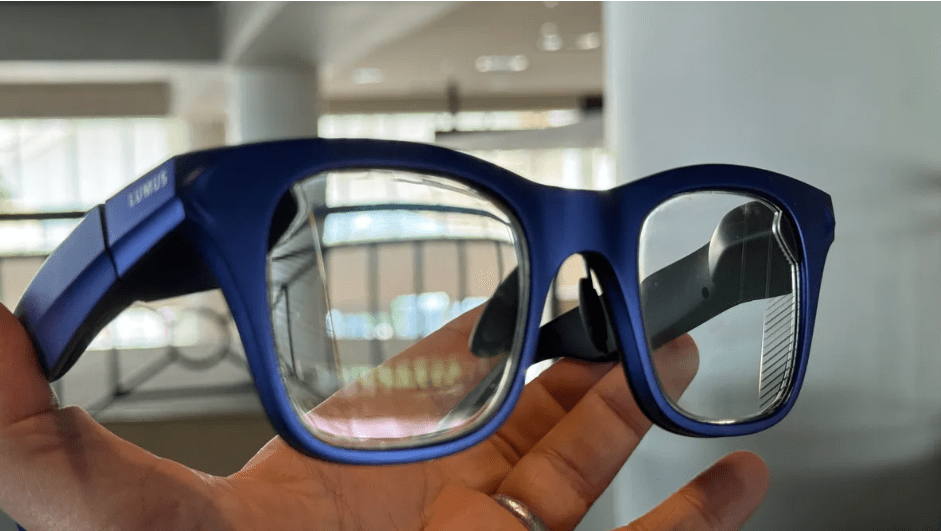 EMERGING TECH
EMERGING TECH
 EMERGING TECH
EMERGING TECH
 EMERGING TECH
EMERGING TECH
Augmented reality technology company Lumus Ltd. today debuted an updated version of its Z-30 optical engine alongside highlighting its high-performance Z-50 engine at AWE 2025, a spatial computing event being held this week in Long Beach, California.
The updated Z-30 optical engine is based on the company’s Z-Lens waveguide architecture and features a 30-degree field of view optimized for mass-market consumer applications. The engine has undergone a series of critical enhancements, including a smaller projector, improved brightness and better power efficiency, allowing for what the company claims could soon reach 7,000 nits per watt, a benchmark luminance efficiency for outdoor-capable AR displays.
The Z-30 engine is designed with everyday applications in mind, including navigation, messaging, real-time translation and notifications, features that demand clarity and discretion rather than full-field immersion. Lumus is pitching Z-30 as a practical solution for consumer-grade smart glasses that can be worn all day, both indoors and outside, by enabling use cases that include a sleek, glasses-like form factor.
One particular change from earlier versions is a reduction in projector size, a critical feature for manufacturers seeking to integrate AR functionality into conventional eyewear designs. Power efficiency improvements also play a role in allowing for smaller battery form factors while extending battery life, two major barriers to widespread AR adoption.
“Z-30 is more than ready for mass-market consumer glasses,” said Chief Executive Ari Grobman. “It’s compact enough to fit inside standard eyeglass frames, powerful enough to function in daylight and efficient enough for all-day use. For AR to become a part of daily life, the hardware needs to disappear into familiar form factors while delivering extraordinary performance. With Z-30, we’re there.”
Alongside Z-30, Lumus also showcased its Z-50 optical engine that offers a 50-degree field of view tailored for more immersive AR experiences. The Z-50 prioritizes color fidelity, sharpness and luminance while maintaining the same slim, lightweight profile as Z-30, making it ideal for use cases such as media streaming, real-time collaboration and interactive fitness.
The company says that both optical engines are now small and efficient enough to power glasses that are “nearly indistinguishable from standard eyewear,” helping to close the gap between functionality and form.
The announcement from Lumus comes amid a resurgence in AR technology alongside growing adoption of artificial intelligence. Google LLC recently entered the space, debuting it Android XR smart glasses in May.
Support our mission to keep content open and free by engaging with theCUBE community. Join theCUBE’s Alumni Trust Network, where technology leaders connect, share intelligence and create opportunities.
Founded by tech visionaries John Furrier and Dave Vellante, SiliconANGLE Media has built a dynamic ecosystem of industry-leading digital media brands that reach 15+ million elite tech professionals. Our new proprietary theCUBE AI Video Cloud is breaking ground in audience interaction, leveraging theCUBEai.com neural network to help technology companies make data-driven decisions and stay at the forefront of industry conversations.